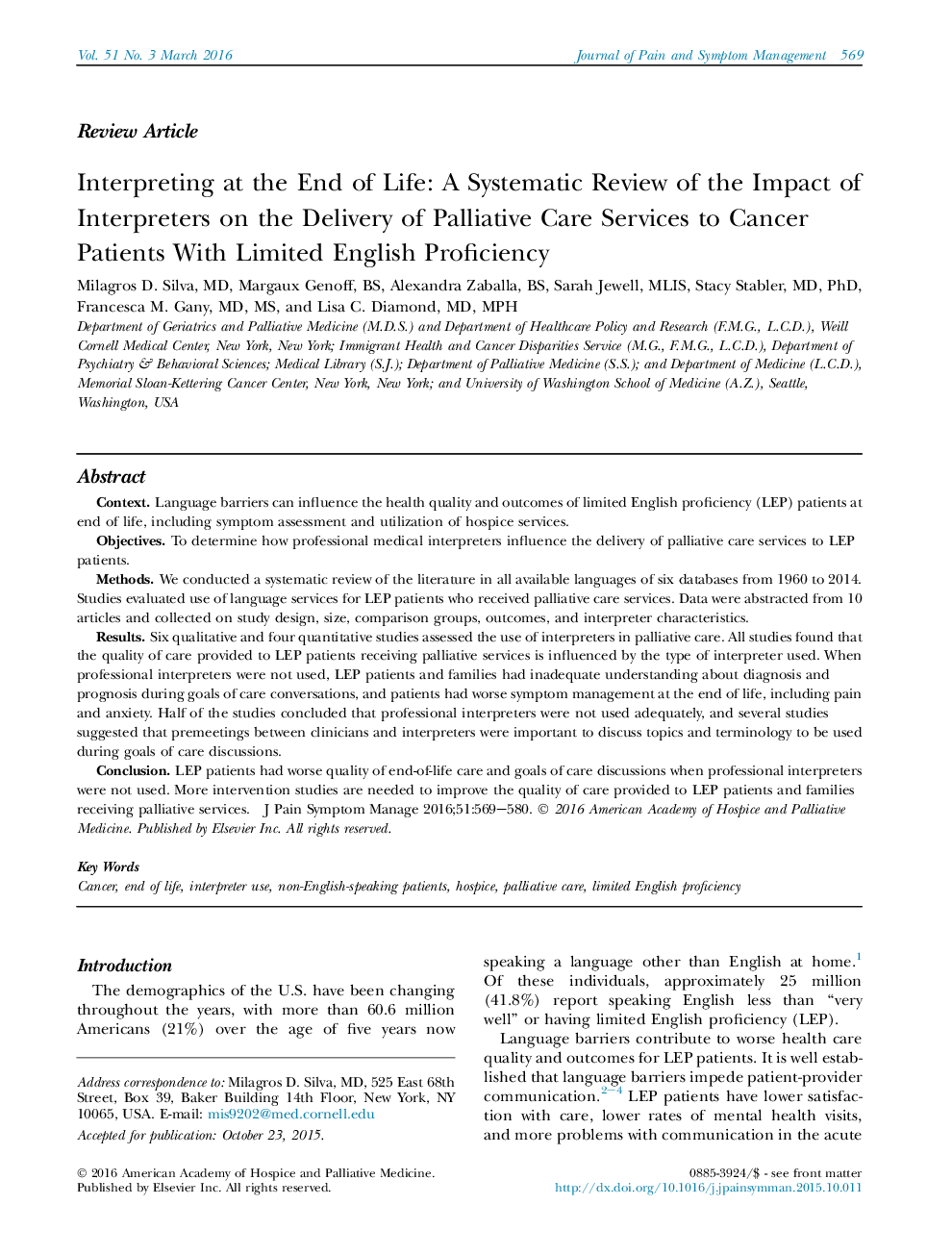| Article ID | Journal | Published Year | Pages | File Type |
|---|---|---|---|---|
| 2729734 | Journal of Pain and Symptom Management | 2016 | 12 Pages |
ContextLanguage barriers can influence the health quality and outcomes of limited English proficiency (LEP) patients at end of life, including symptom assessment and utilization of hospice services.ObjectivesTo determine how professional medical interpreters influence the delivery of palliative care services to LEP patients.MethodsWe conducted a systematic review of the literature in all available languages of six databases from 1960 to 2014. Studies evaluated use of language services for LEP patients who received palliative care services. Data were abstracted from 10 articles and collected on study design, size, comparison groups, outcomes, and interpreter characteristics.ResultsSix qualitative and four quantitative studies assessed the use of interpreters in palliative care. All studies found that the quality of care provided to LEP patients receiving palliative services is influenced by the type of interpreter used. When professional interpreters were not used, LEP patients and families had inadequate understanding about diagnosis and prognosis during goals of care conversations, and patients had worse symptom management at the end of life, including pain and anxiety. Half of the studies concluded that professional interpreters were not used adequately, and several studies suggested that premeetings between clinicians and interpreters were important to discuss topics and terminology to be used during goals of care discussions.ConclusionLEP patients had worse quality of end-of-life care and goals of care discussions when professional interpreters were not used. More intervention studies are needed to improve the quality of care provided to LEP patients and families receiving palliative services.
